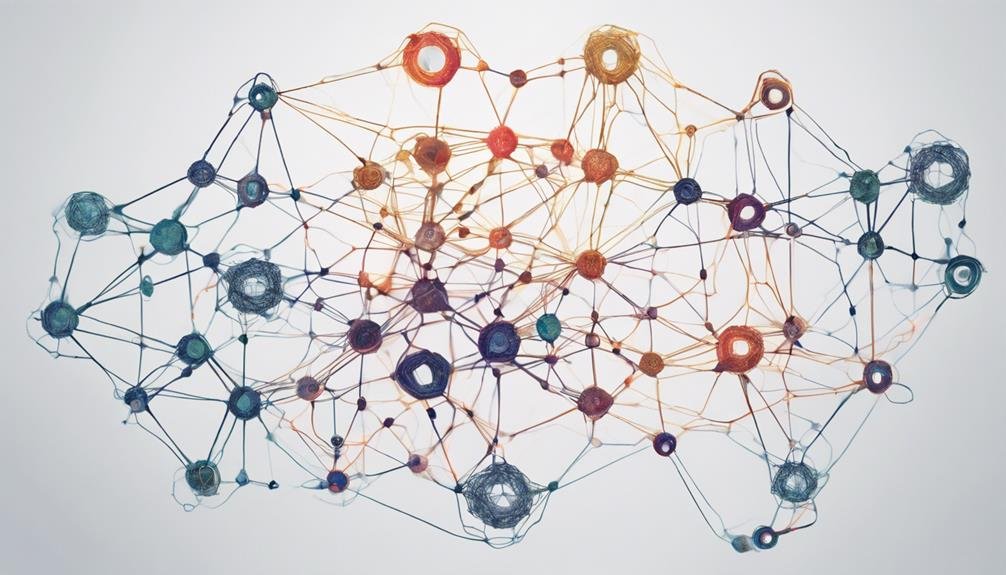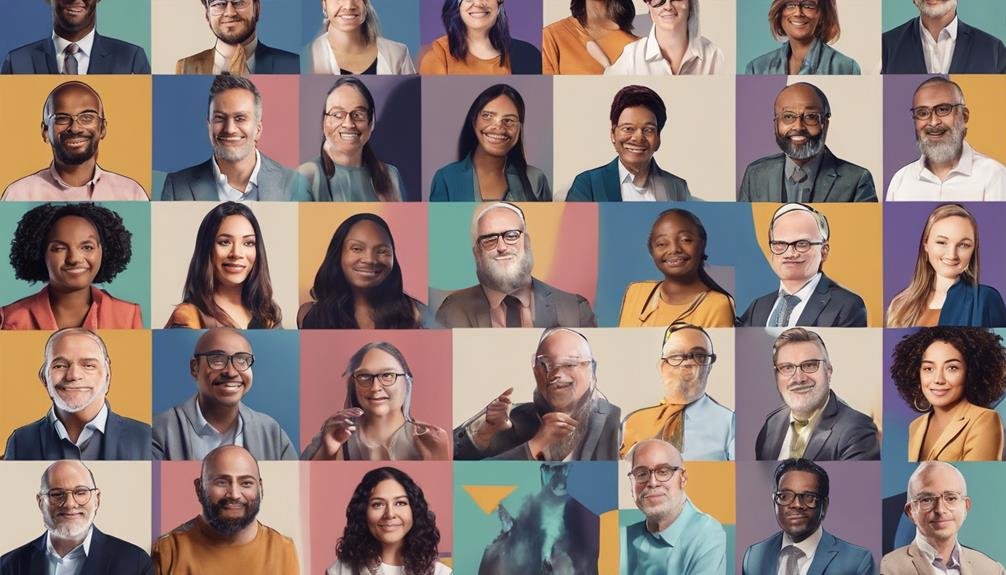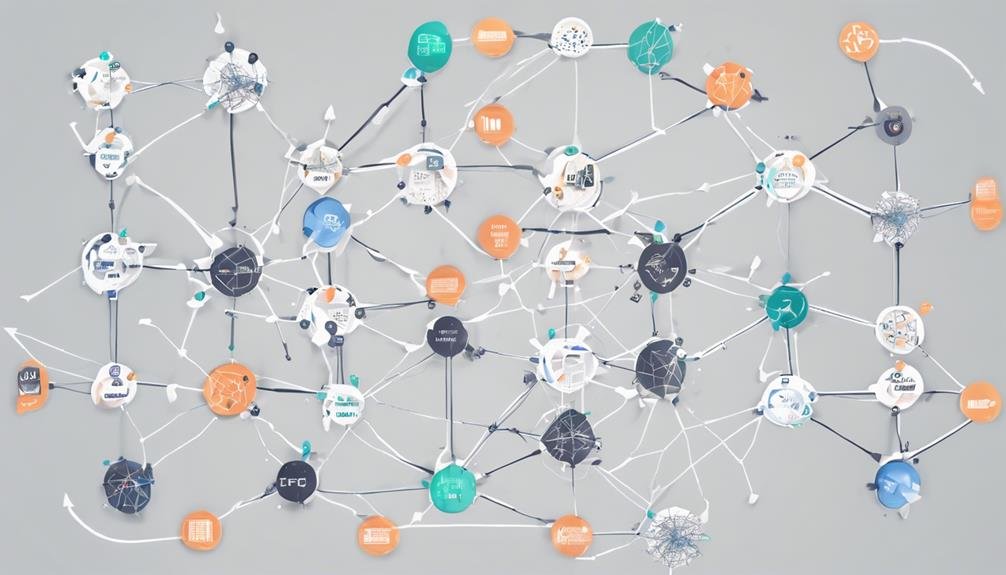In DeFi, DAO Governance Models define decision-making and operations within DAOs. Operating system DAOs focus on smart contracts, while Protocol DAOs manage network governance. Investment DAOs decentralize investment decisions, and Media DAOs promote collaboration among content creators. Collector DAOs analyze data for informed decisions in DeFi ecosystems.
Factors like DAO size and decision processes influence frameworks. Effective governance requires thorough research and planning. Protocol DAOs maintain blockchain protocols through transparent voting mechanisms. Investment DAOs revolutionize collective decision-making, while Media DAOs empower content creators. Collector DAOs provide data analysis, enhancing transparency. Various DAO types, like Social and Grants DAOs, offer unique functionalities. Explore deeper insights into DAO governance models for a detailed understanding.
Table of Contents
Brief Overview of What Defines DAO Governance Models in DeFi?
- Operating system DAOs focus on smart contract creation and management.
- Protocol DAOs govern network protocols with on-chain voting mechanisms.
- Investment DAOs offer decentralized investment strategies and decision-making.
- Media DAOs empower content creators through collaboration and revenue sharing.
- Collector DAOs gather and analyze data for informed decision-making in DeFi.
Overview of DAO Governance Models
When exploring the domain of DeFi, understanding the diverse structures of DAO governance models becomes essential. DAO governance models in DeFi encompass various types, such as operating system DAOs, protocol DAOs, investment DAOs, media DAOs, and collector DAOs. Operating system DAOs primarily focus on smart contract creation and management, acting as the foundational backbone for different types of DAOs within the blockchain technology landscape.
On the other hand, protocol DAOs are dedicated explicitly to everyday operations and the development of blockchain protocols, playing a critical role in network governance and functionality. Choosing the appropriate DAO governance framework depends on factors like the DAO’s size, decision-making processes, conflict resolution methods, and update frequency. Thorough research, understanding, and careful planning are essential when implementing an effective DAO governance model in the DeFi space. It is imperative to take these elements into account to ensure the seamless operation and success of decentralized autonomous organizations in the ever-evolving DeFi ecosystem.
Types of DAOs in DeFi

Operating within the domain of DeFi, various types of DAOs play pivotal roles in decentralized governance and decision-making processes. Decentralized autonomous organizations (DAOs) in DeFi come in different forms, each tailored to specific functions within the ecosystem. Protocol DAOs are dedicated to developing and maintaining blockchain protocols to guarantee the smooth functionality of networks.
Investment DAOs provide avenues for decentralized investment strategies and decision-making, offering participants opportunities to engage collectively in the financial aspects of DeFi. Media DAOs foster collaboration among content creators in the DeFi space, facilitating content distribution and monetization. Collector DAOs focus on gathering and analyzing data to inform decision-making processes within decentralized finance ecosystems. Each type of DAO brings a unique perspective and contribution to the decentralized governance landscape of DeFi, showcasing the diversity and innovation present in the domain of DAO governance models.
Operating System DAOs

Operating System DAOs are pivotal in managing smart contracts and underpinning decentralized governance structures. They initiate and facilitate decentralized decision-making processes, ensuring seamless operational task execution. By enabling efficient and decentralized functionalities, Operating System DAOs are essential for the smooth operation of decentralized organizations.
Role of Executives
Executives in Operating System DAOs play a pivotal role in overseeing smart contract creation and management processes. They serve as the foundational backbone for various types of decentralized governance structures. These executives are essential for initiating and maintaining efficient operations within the DAO framework. Their responsibilities include ensuring the seamless execution of tasks and contributing to the overall functionality of decentralized processes.
Operating System DAO executives play an essential role in ENS governance, ensuring the smooth operation of naming services within the decentralized ecosystem. By actively participating in smart contract management and decentralized governance, these executives facilitate the effective functioning of Operating System DAOs and contribute to the broader DeFi landscape.
Voting Mechanisms
Utilizing various voting mechanisms, stakeholders actively participate in decision-making processes within Operating System DAOs, shaping the direction of smart contract creation and execution. In these DAOs, voting power is often linked to token ownership, granting more influence to those holding a more significant stake in the network. This connection between voting power and token ownership incentivizes stakeholders to align their decisions with the long-term success of the DAO.
Additionally, decisions made through these voting mechanisms are transparent, with outcomes recorded on the blockchain for all participants to verify. This transparent recording guarantees accountability and fosters trust within the community, as individuals can track the decision-making process and its implementation accurately. Different methods, such as majority voting, quadratic voting, and delegation, offer a range of options for stakeholders to express their preferences effectively.
Decision-making Processes
Efficiently automating decision-making processes, these Operating System DAOs in DeFi revolutionize governance through smart contracts and automated protocols. By utilizing frameworks based on predefined rules, Operating System DAOs guarantee transparent and efficient governance. Through the use of smart contracts, decisions are executed automatically based on specific conditions without the need for human intervention.
Holders of governance tokens within these DAOs play a pivotal role in shaping protocol changes through participation in voting mechanisms. Leveraging blockchain technology, Operating System DAOs streamline decision-making processes in DeFi, enhancing the overall governance structure. These decentralized autonomous organizations empower users by providing a platform where decisions are made autonomously, creating a more democratic and efficient ecosystem for decentralized finance.
Protocol DAOs

Protocol DAOs in DeFi are pivotal for managing the day-to-day operations and development of blockchain protocols. These DAOs execute voting mechanisms and decision-making processes critical for the governance of decentralized applications. Understanding how Protocol DAOs function is essential for traversing the complexities of DeFi governance structures.
Voting Mechanisms
Voting mechanisms within Protocol DAOs play a pivotal role in determining changes within blockchain protocols and network functionality. Community members holding tokens in Protocol DAOs often use these tokens to cast votes on proposed changes or upgrades. This democratic process guarantees that decisions are made collectively, reflecting the consensus mechanisms of the DAO.
Through on-chain voting processes, transparency is upheld, allowing for a decentralized approach to governance. By incorporating the voices of various stakeholders, including developers, users, and investors, Protocol DAOs can promote community participation in the evolution of blockchain protocols like Ethereum Name Service. Ultimately, these voting mechanisms shape the trajectory of DeFi protocols, guiding their operations and development in a decentralized and inclusive manner.
Decision-Making Processes
Utilizing transparent and decentralized processes, decision-making in Protocol DAOs empowers community members to shape the direction of blockchain protocols collectively. Through token-based voting rights, participants engage in governance, ensuring inclusivity and network integrity. Essential contracts play a crucial role in enforcing decision outcomes within Protocol DAOs, guaranteeing the trustless execution of community-driven choices.
These mechanisms enable efficient and secure management of protocol changes, fostering a democratic environment where stakeholders have a direct impact on the evolution of the decentralized ecosystem. By incorporating transparent and decentralized decision-making processes, Protocol DAOs establish a framework that prioritizes community consensus and enhances the sustainability of blockchain protocols through collaborative governance structures.
Investment DAOs

Are you curious about how Investment DAOs in DeFi revolutionize collective investment decision-making? Investment DAOs harness decentralized governance to enable a collaborative approach to investing in various DeFi projects<span data-preserver-spaces=”true”>. Through pooling funds, members collectively decide on investment opportunities via community voting mechanisms. The use of governance tokens grants members the power to influence investment strategies and decisions within these DAOs. By leveraging transparent decision-making processes, Investment DAOs facilitate the creation of diversified investment portfolios in the DeFi space.
Participating in Investment DAOs offers individuals shared ownership and decision-making authority, fostering a sense of community and empowerment within the DeFi ecosystem. These DAOs not only democratize investment opportunities but also provide a platform for exploring and engaging with different facets of decentralized finance. Embracing the principles of transparency and collaboration, Investment DAOs pave the way for inclusive and innovative investment practices in the rapidly evolving world of DeFi.
Media DAOs

Empowering content creators in decentralized finance ecosystems, Media DAOs focus on facilitating collaboration and content monetization. These DAOs provide a platform for creators to leverage blockchain technology, ensuring transparent revenue sharing and content ownership. By utilizing tokenized governance, Media DAOs enable community-driven decision-making, allowing for content curation and platform development to be shaped collectively.
Examples like Audius and Rarible highlight the transformative potential of Media DAOs within the digital media landscape. Through decentralized structures, Media DAOs empower content creators by offering tools for monetization and distribution. Collaborative efforts within these DAOs not only enhance the visibility of creators but also foster a sense of community and shared ownership. By harnessing the power of blockchain, Media DAOs are reshaping the way content is created, shared, and valued in decentralized ecosystems.
Collector DAOs

Specializing in gathering and managing data for decision-making processes within decentralized finance (DeFi) ecosystems, Collector DAOs focus on aggregating and analyzing information related to market trends, user behavior, and project performance to inform governance decisions. These DAOs play an essential role in enhancing transparency, efficiency, and strategic planning within DeFi platforms. Here are some key points about Collector DAOs:
- Monitor token metrics
- Track liquidity trends
- Assess risk factors
Social DAOs

Shifting from the realm of Collector DAOs, Social DAOs in decentralized finance (DeFi) focus on community-driven initiatives and decision-making processes. These DAOs empower members to collaborate on various projects, investments, and charitable activities, fostering a sense of shared ownership and responsibility within the community. Employing voting mechanisms, Social DAOs guarantee fair and transparent governance, where each member’s voice can be heard and considered in the decision-making process.
Examples of Social DAOs include those supporting social impact projects, art collaborations, and community grants, reflecting a diverse range of initiatives driven by collective efforts. The primary goal of Social DAOs is to promote inclusivity, diversity, and collective impact within decentralized finance ecosystems, creating spaces where individuals can come together to work towards common goals and make a meaningful difference through collaborative actions and shared decision-making processes.
Grants DAOs

Grants DAOs play an essential role in the decentralized finance (DeFi) ecosystem by facilitating transparent and community-driven distribution of funds to projects or individuals through democratic voting mechanisms. These decentralized decision-making platforms enable community engagement and empower members to decide on resource allocation collectively. Here’s why Grants DAOs are pivotal in DeFi:
- Decentralized Decision-Making: Grants DAOs allow community members to have a say in how funds are distributed, promoting a fair and inclusive decision-making process.
- Community Engagement: By involving members in voting and decision-making, Grants DAOs foster a sense of ownership and belonging within the community.
- Resource Allocation Transparency: Through transparent voting mechanisms, Grants DAOs foster the allocation of resources openly, promoting trust and accountability within the ecosystem.
Frequently Asked Questions
What Are the Governance Models in Web3?
In web3 governance models, you engage in voting mechanisms, token incentives, and community engagement. Your participation shapes decision-making. MakerDAO and Compound exemplify effective structures. Actively participate in defining protocols and promoting decentralization in DeFi.
What Are the Governance Models in Crypto?
In crypto, governance models involve token voting and stakeholder participation. Decentralized decision-making through governance tokens and community governance is crucial. Consensus mechanisms guarantee effective decision-making structures, balancing decentralization with efficiency for protocol changes.
What Is DAO Government?
Decentralized decision-making in DAO governance involves community voting and token governance. It empowers members to influence project direction and protocol changes. Through transparency and participation, DAOs promote community-driven management in DeFi projects.
What Are the Characteristics of a Decentralized Autonomous Organization DAO?
In DAOs, you’ll find consensus mechanisms driving decision-making processes. Token voting empowers holders to steer the ship. Smart contracts guarantee rules are ironclad, creating trust in decentralized governance models. DAOs redefine autonomy.
Conclusion
In summary, DAO governance models in DeFi play a vital role in shaping the decision-making processes within decentralized organizations. From Operating System DAOs to Grants DAOs, each type serves a specific function in the DeFi ecosystem. By understanding the nuances of these models, participants can contribute effectively to the growth and development of decentralized finance. Embrace the diversity of DAOs, for they are the building blocks of a truly decentralized future.




